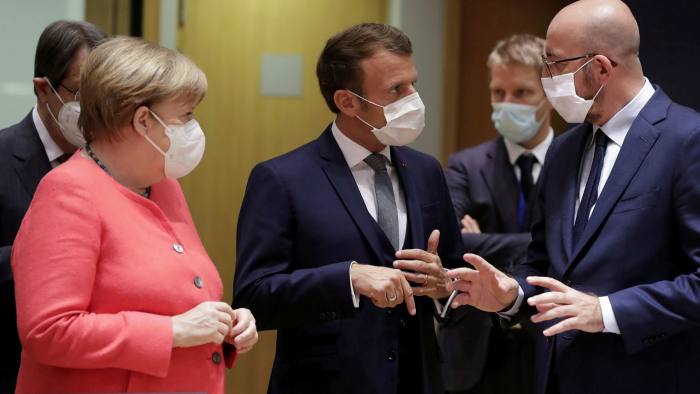EU summit: Budget stalemate continues but Hungary not united in opposition to EU’s rule of law
EURONEWS – Leaders gathered remotely to discuss the desperately needed coronavirus recovery fund and budget.

Another EU summit, another EU crisis.
Leaders gathered remotely to discuss the desperately needed coronavirus recovery fund and budget.
But everything is now on hold.
Hungary and Poland have effectively vetoed the process, claiming a mechanism linking future transfers of money to the issue of the rule of law was part of an unfair ideological battle being waged by Brussels.
Balázs Hidvéghi is a Member of the European Parliament (MEP) for Hungary’s ruling Fidesz party:
“When we talk about the rule of law, which is not clearly defined and it’s an ideological sort of subjective matter that one side of the arena has been misusing… that must not to be linked to any functioning of the EU.”
But opposition politicians in Hungary are keen to point out that this view is not shared by everyone
Katalin Cseh is an MEP from Hungary’s Momentum Movement:
“It is very important to state that over 70 percent of Hungarians support the rule of law conditionality. The Hungarian businesses, Hungarian municipalities need the money from the recovery fund and from the multi-annual budget. And the opposition tries to send a message to the world that Mr Orbán is not equal to Hungary. There is indeed a significant demand for the conditionality mechanism and also that we don’t want to block the [Multiannual Financial Framework] as Hungarians.”
Some view this as a pivotal moment for the European Union when leaders must stand firm against Hungary and Poland.
“If you want to be a member of the European Union you need to respect the rule of law.”
Alberto Alemanno, professor of EU law
“That means you need to have a judiciary which is independent, you need to have a media which is absolutely free to say what they want within the constitutional limitations. Those violations have been occurring for too long, they have been systemic, they have been persistent, they have been recognized by all kind of organizations around, it is possible, it is no longer acceptable to be a member of the European Union like Poland and Hungary, receiving European funds and not respect the rule of law,” says Alberto Alamanno professor of EU law at HEC Paris.
There was little expectation that this summit would manage to finalise a deal. And indeed this mechanism would not ultimately solve the rule of law issue. But with time not on their side and Europe’s economies facing deeper recessions, EU leaders will be hoping a compromise can be found -and soon.
Speaking to Good Morning Europe, former Finnish Prime Minister Alexander Stubb, said he expects all 27 Member States will be able to reach a compromise:
“I’ve sat around European negotiating tables pretty much since 1995…and there’s always this two-level game. On the one hand you have to negotiate in Brussels, on the other hand, you have to sell the deal at home. But at the end of the day, we are going to get a deal, that deal is going to be good, that 750 billion euro rescue package is going to be there, whether Viktor Orban likes it or not. I’ve been there so many times before.”
To watch the report and listen to the full interview with Alexander Stubb, click on the media player above.